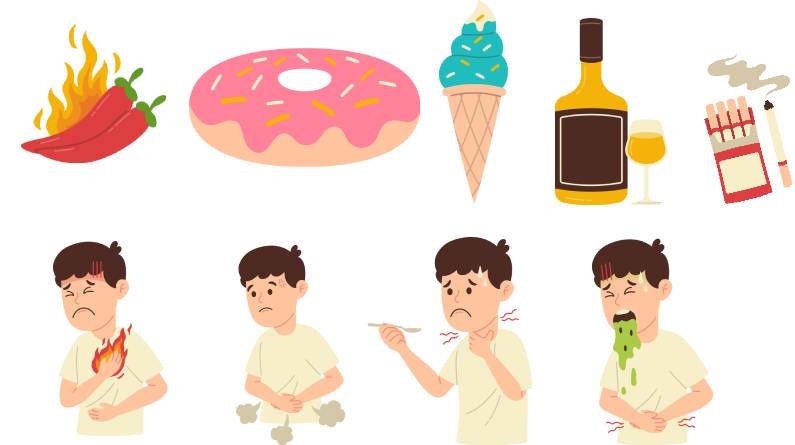Managing Irritable Bowel Syndrome (IBS) Through Diet
Irritable Bowel Syndrome (IBS) is a gastrointestinal disorder characterized by abdominal pain, bloating, and changes in bowel habits. While medication and symptom management are crucial, diet plays a significant role in triggering IBS symptoms. Identifying and avoiding food triggers can help alleviate symptoms and improve overall quality of life.
Common Food Triggers for IBS
Some foods are known to trigger IBS symptoms in most people. These include:
1. Insoluble Fiber: While soluble fiber can be beneficial, insoluble fiber can exacerbate IBS symptoms.
2. Gluten: A protein found in grains, gluten can cause immune reactions and intolerances in some individuals.
3. Fried Foods: High-fat foods can disrupt digestion and trigger IBS symptoms.
4. Caffeinated Drinks: Coffee, sodas, energy drinks, and chocolates containing caffeine can stimulate the intestines and cause diarrhea.
5. Dairy: High-fat dairy products can trigger diarrhea, while lactose intolerance can also be a concern.
6. Chocolate: High in fat and sugar, chocolate can trigger IBS symptoms, including constipation.
7. Beans and Legumes: While nutritious, these foods can cause gas, bloating, and cramps in some individuals.
8. Processed Foods: Ready-made and processed foods often contain excess salt, sugar, and fat, which can trigger IBS symptoms.
9. Artificial Sweeteners: Sugar-free products can contain artificial sweeteners, sugar alcohols, and other sweeteners that can cause bloating, digestive discomfort, and diarrhea.
10. Alcohol: Alcoholic drinks can cause dehydration and gastric disturbances, even in individuals without pre-existing gastrointestinal issues.
Managing IBS Through Dietary Changes
By identifying and avoiding food triggers, individuals with IBS can reduce symptoms and improve their quality of life. Some strategies include:
– Keeping a food diary to track symptoms and identify triggers
– Avoiding common trigger foods
– Incorporating soluble fiber-rich foods, such as fruits, vegetables, and whole grains
– Choosing low-fat, easy-to-digest foods
– Staying hydrated and managing stress
References:
https://www.healthline.com/health/digestive-health/foods-to-avoid-with-ibs#what-to-eat-instead
https://www.medicinenet.com/irritable_bowel_syndrome_ibs/article.htm

